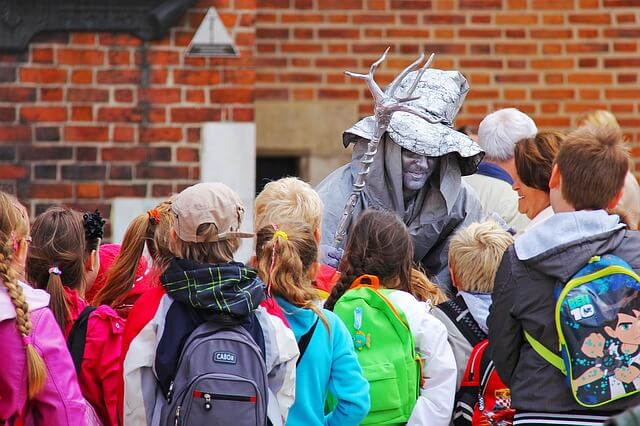Educational entertainment is a great way to increase a student’s level of activity and dedication. It also provides a fresh mind for new ideas. Some students even want to pursue careers as entertainers. In either case, educational entertainment is significant during travels and you can try some on Tripster. Moreover, it increases the student’s empathy and critical thinking skills. So, when you’re planning your next field trip, don’t forget to include educational entertainment during your travels.
Field trips provide entertainment for students
Field trips are the perfect trips to give young people a new perspective on what they’re learning. They help students stay focused in the classroom and provide a refreshing break from the monotony of their regular lives. This type of learning activity also serves as an excellent motivator. Students can learn a lot from a field trip while having fun simultaneously. This is why field trips are considered “fun” for students.
While field trips provide educational entertainment for students, they can still pose behavior and distraction problems. By including student phones in the planning process, teachers can create a unique learning opportunity. Students can practice responsible, intellectually curious behavior by bringing their devices on the field trip. For example, students can take pictures and videotape the sights they visit and create walking guides for these sights. These guides can be shared with other students, and the teachers can use them as a tool to teach students about a new topic.
Museums are also a great way to learn more about a topic. Some of the most enriching museum field trips allow students to engage with professionals and gain a new perspective. This type of learning is especially beneficial for students who have minimal enrichment opportunities at home. The Smithsonian Center for Education and Museum Studies offers many resources, including lesson plans, videos, and suggested readings. The resources available through the Smithsonian Center for Education and Museum Studies can also be used in local museums.
Field trips increase empathy

Research conducted by the University of Arkansas reveals that students who visit art museums experience greater empathy, tolerance, and critical thinking. Moreover, these field trips allow students to view subjects from a diverse range of perspectives, which enhances critical thinking. For example, in a recent study, students who visited the Crystal Bridges Museum of American Art showed significant improvements in their historical empathy, tolerance, and critical thinking skills. A museum is also an excellent place for students to gain new insights into different cultures.
Any field trip aims to increase the children’s empathy, and teachers can play an important role in that process. Educators can have a profound effect on the safety of children as they model behavior for their students. Empathy requires students to think from a different perspective and to recognize others’ feelings. Educators and other adults must be aware of this reality and provide opportunities for students to practice it.
Educational entertainment during field trips helps students develop culturally, socially, and academically. By giving students a taste of the natural world, these experiences increase students’ understanding and empathy for other cultures. By introducing students to diverse cultures, students are more likely to feel sympathy for other people and better understand their own culture. For example, a visit to a farm might surprise a student with the hours they work.

Field trips increase critical thinking skills
Research shows that educational entertainment during field trips enhances student critical thinking. Art museum visits can boost necessary thinking skills and foster empathy. Students can explore the various viewpoints that artists display in their works and think critically about them. In addition, art museum visits can improve students’ tolerance for different kinds of art. Despite these positive outcomes, there is a need for more research on these trips. Therefore, schools should focus more on cultural field trips to help students develop critical thinking skills.
The benefits of field trips have been shown to extend well beyond the arts. One study found that art tours helped students to increase their observance and detail-oriented skills. The results also indicated that students who participated in art tours described images more accurately than those who were not. The benefits of art tours extend to other subjects, but more research is needed to find out how these gains translate to other disciplines. Overall, the benefits of art tours are well worth the investment.
In addition to the educational benefits of enrichment field trips, the activities have real-world value. Field trips can include a visit to a grocery store, a waterfront park, a museum, a theater, a community garden, or even a restaurant. Such experiences help students make connections between classroom learning and the real world. Students may also learn how to solve real-world problems that affect their lives.

Featured Image: Group travel photo created by fxquadro – www.freepik.com





No Comments